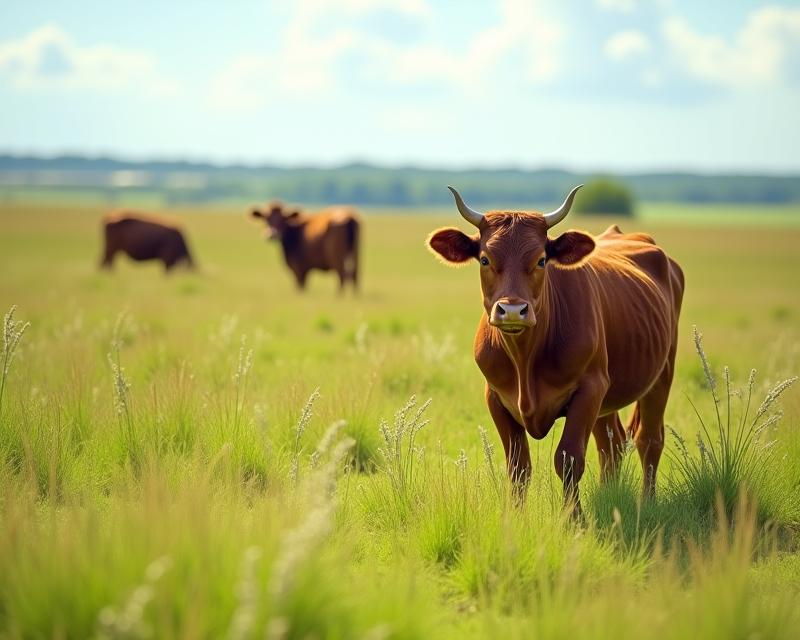Choosing the Right Pasture Grasses
Publish in Sustainable Farming el 22/07/2025 16:44
Choosing the Right Pasture Grasses
Selecting the right grasses for your pasture is a crucial decision that impacts the health of your livestock, the productivity of your land, and ultimately, your farm's success. There's a wide variety of grasses available, each with unique characteristics. Understanding these differences is key to making the best choice for your specific needs. This article will explore some popular options, comparing them based on climate, soil type, and grazing habits.

Popular Pasture Grasses
Here's a look at some of the most common and effective pasture grasses:
- Bermuda Grass: A warm-season grass known for its heat tolerance and drought resistance. It grows best in hot climates and provides excellent grazing for cattle and horses. Bermuda is a fast grower, but it can be aggressive and may require careful management to prevent it from outcompeting other plants.
- Orchardgrass: A cool-season grass that thrives in cooler climates. It's highly palatable to livestock and produces abundant forage. Orchardgrass is also relatively drought-tolerant and has good winter hardiness. It's a great choice for mixed pastures.
- Tall Fescue: Another popular cool-season grass, tall fescue is known for its deep root system, which helps it withstand drought and erosion. It's also relatively tolerant of poor soil conditions. However, some varieties can have endophyte issues, so choosing endophyte-free varieties is recommended, especially for livestock consumption.
- Kentucky Bluegrass: A cool-season grass prized for its beautiful, dense growth. It's excellent for establishing pastures and providing a lush grazing surface. Kentucky Bluegrass prefers moist, well-drained soils and doesn't tolerate heat or drought as well as other options.
- Ryegrass: A fast-growing cool-season grass often used for overseeding or establishing temporary pastures. It provides quick growth and high yields but is not as persistent as other grasses. Ryegrass is also susceptible to winter kill in colder climates.
Climate and Soil Considerations
The best grass for your farm depends heavily on your local climate and soil conditions. Warm-season grasses like Bermuda and Ryegrass flourish in hot, sunny areas, while cool-season grasses like Orchardgrass and Tall Fescue prefer cooler temperatures. Soil type also plays a significant role. Some grasses tolerate sandy soils better than others, while others thrive in clay-rich soils. A soil test is highly recommended to determine your soil's pH and nutrient levels, allowing you to choose grasses that will thrive in your specific conditions.
Grazing Needs and Management
Consider the type of livestock you'll be grazing. Cattle, sheep, and horses have different grazing preferences and nutritional needs. Some grasses are more palatable to certain animals than others. Also, think about your grazing management practices. Rotational grazing, where livestock are moved between pastures, can help prevent overgrazing and promote healthy grass growth. Proper fertilization and weed control are also essential for maintaining a productive pasture. Consulting with a local agricultural extension agent can provide tailored recommendations for your farm.
Making the Right Choice
Ultimately, choosing the right pasture grasses is an investment in the long-term health and productivity of your farm. By carefully considering your climate, soil, livestock, and grazing management practices, you can select a grass mix that will provide a sustainable and profitable source of forage for years to come. Don't hesitate to experiment with different grass species and mixes to find what works best for your land. A diverse pasture is often a more resilient and productive pasture!





